Experience the Heritage of Linzi Ancient City of Qi: A Must-Visit Destination in China
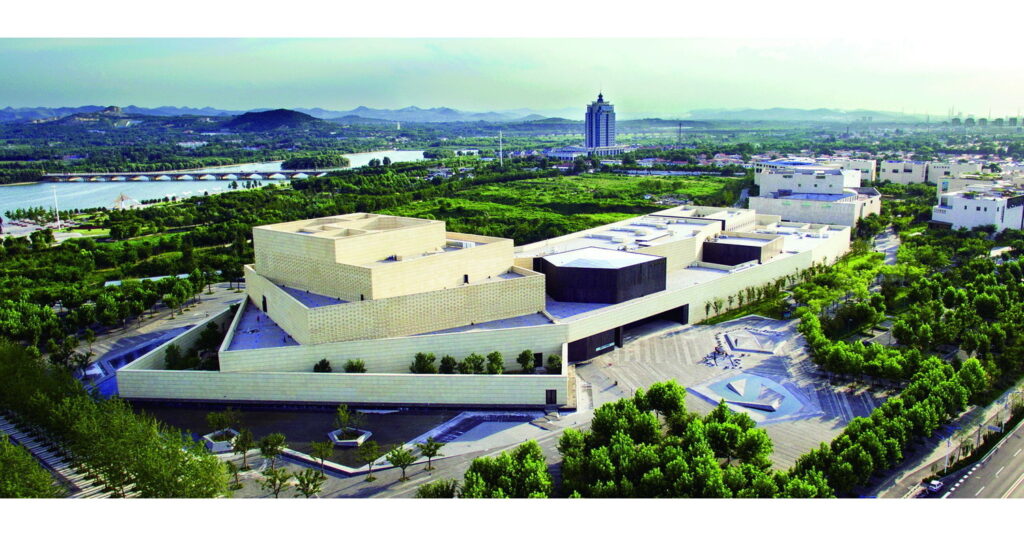
An Essential Guide to Visiting Linzi Ancient City Of Qi
In This Guide
- An Essential Guide to Visiting Linzi Ancient City Of Qi
- The Rich History and Legends of Linzi Ancient City Of Qi
- Main Highlights: What You Absolutely Can’t Miss
- Planning Your Visit: A Practical Guide
- Tickets: Prices, Booking, and Tips
- How to Get There: A Complete Transportation Guide
- Local Cuisine and Accommodation Nearby
- Frequently Asked Questions
- Final Thoughts on Your Trip
Nestled in the heart of Shandong Province, Linzi Ancient City of Qi, also known as the historic capital of the Qi State, invites travelers to step back into a time when it was a bustling center of ancient Chinese civilization. As you wander through its storied streets, the whispers of philosophers, warriors, and emperors echo around you, each corner revealing a piece of history that shaped the nation.
A Tapestry of History and Culture
Linzi, with roots tracing back over 2,500 years, was once the epicenter of the Qi State during the Warring States period. It was renowned not only for its strategic importance but also for its cultural richness. Today, the remnants of this illustrious past are beautifully preserved, allowing visitors to immerse themselves in the legacy of one of China’s most significant dynasties.
Must-See Attractions
While the ancient city itself is a highlight, Linzi offers a plethora of attractions that breathe life into its historical narrative. Key sites include:

Linzi Ancient City Of Qi.
- Qi Dynasty Memorial Museum: A treasure trove of artifacts that showcase the remarkable achievements of the Qi State.
- Mausoleum of Qi Dynasty: A serene site that honors the royal lineage of the Qi rulers.
- Zibo Qi Old City: A vibrant area filled with traditional shops and local delicacies, perfect for those looking to experience local culture firsthand.
Culinary Delights
No visit to Linzi would be complete without indulging in its unique culinary offerings. Stroll through bustling markets where vendors serve up local specialties, including the famous roasted sesame seed bread, and discover quaint tea houses where you can savor traditional brews.
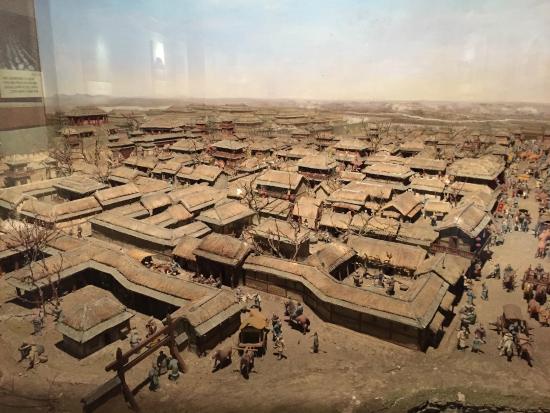
Linzi Ancient City Of Qi.
Practical Information
Before embarking on your journey, consider the following:
- Best Time to Visit: The ideal time to explore Linzi is during spring and autumn when the weather is mild and the scenery is breathtaking.
- Getting There: Linzi is easily accessible from major cities like Jinan and Zibo via public transportation or private car.
- Accommodation: A range of hotels and guesthouses are available to suit various budgets, ensuring a comfortable stay.
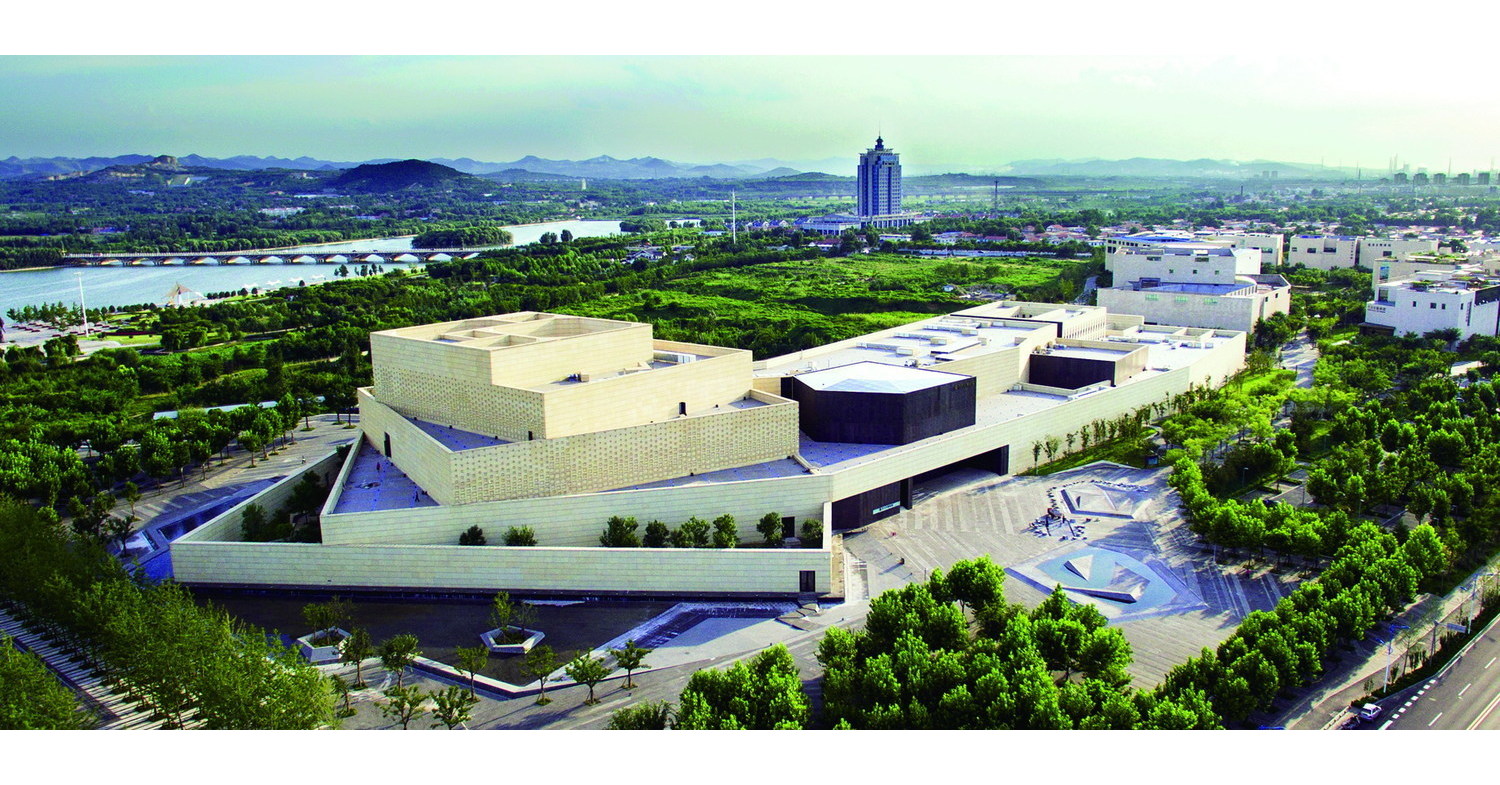
Linzi Ancient City Of Qi.
As you prepare for your adventure to Linzi Ancient City of Qi, let the allure of its ancient past and the warmth of its local culture guide your journey through this remarkable destination. Whether you are a history buff, a culture enthusiast, or simply seeking an off-the-beaten-path experience, Linzi promises a captivating glimpse into the heart of China’s rich heritage.
The Rich History and Legends of Linzi Ancient City Of Qi
Nestled in the Linzi District of Zibo, Shandong Province, the ancient city of Qi is a captivating testament to China’s rich historical tapestry. Once the capital of the Qi State during the tumultuous Spring and Autumn period (circa 770-476 BCE), Linzi not only served as a political and economic center but also as a cultural beacon that illuminated the surrounding regions.
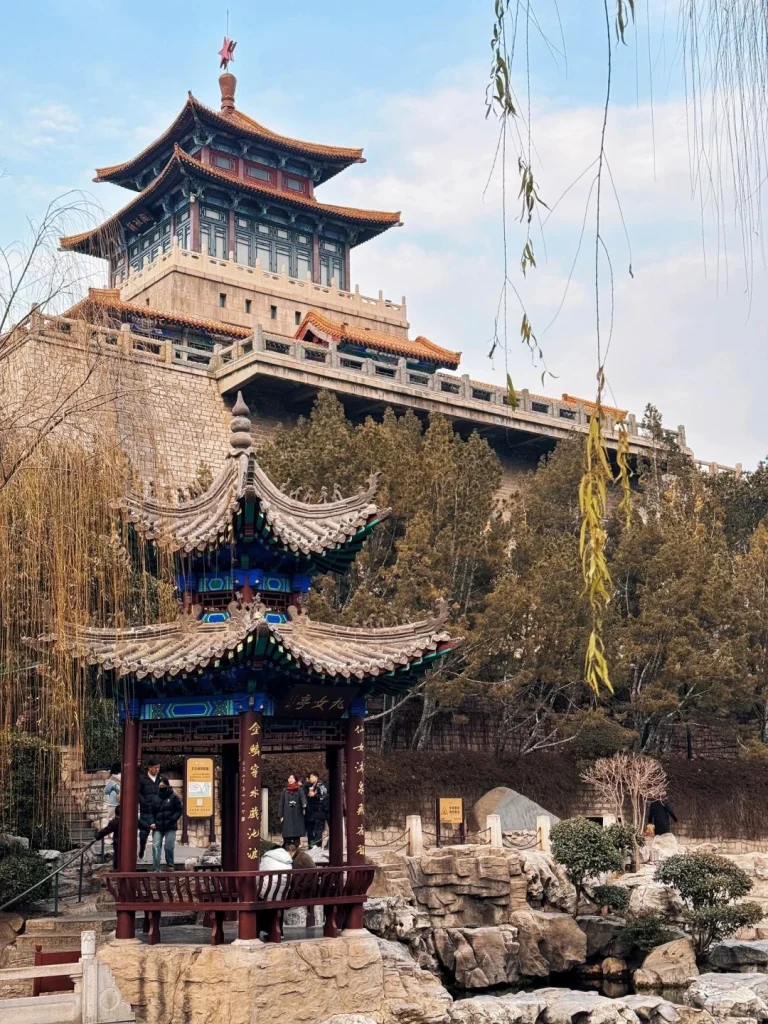
Linzi Ancient City Of Qi.
A Glimpse into History
The significance of Linzi can be traced back over 2,500 years. As the capital of the Qi State, it flourished under the leadership of influential rulers who promoted advancements in agriculture, commerce, and philosophy. The city was renowned for its strategic location along major trade routes, fostering connections between various regions and facilitating cultural exchanges.
One of the city’s most notable historical figures is Guan Zhong, a statesman and advisor to Duke Huan of Qi. His reforms transformed Qi into one of the most powerful states of its era, emphasizing the importance of agriculture and trade. Linzi not only became a center for economic prosperity but also a hub for intellectual discourse, attracting scholars and philosophers who contributed to the evolution of Chinese thought.
Legends and Cultural Significance
Linzi is steeped in legends that add a mystical allure to its historical narrative. Among the most famous is the tale of Jiang Ziya, a legendary figure often celebrated as the founder of the Zhou Dynasty. Folklore narrates how Jiang Ziya was once a humble fisherman who, after receiving a divine mandate, rose to prominence and played a crucial role in the overthrow of the tyrannical Shang Dynasty. His association with Linzi is emblematic of the region’s significance in shaping the course of Chinese history.
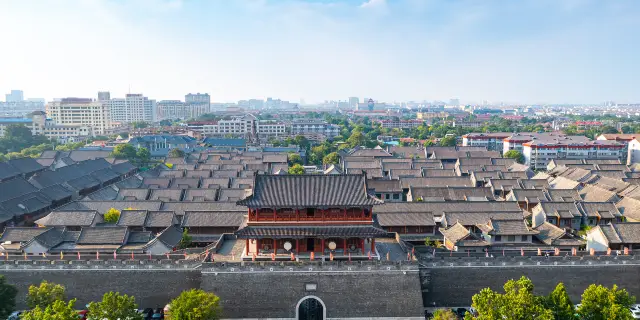
Linzi Ancient City Of Qi.
Adding to the city’s cultural richness are the Buddhist temples and ancient ruins scattered throughout Linzi. Visitors can explore the Mausoleum of the Qi Dynasty, where the remains of prominent leaders lie, and the Qi Dynasty Memorial Museum, which houses artifacts and exhibits that illuminate the daily lives and customs of the Qi people.
Modern-Day Exploration
Today, Linzi stands as a vibrant destination that harmoniously blends ancient history with modern attractions. Travelers can stroll through the bustling streets of Zibo Qi Old City, where traditional shops offer unique handicrafts, local delicacies, and a glimpse into the past. The China Ancient Chariots Museum showcases intricate artifacts that tell the story of warfare and transportation in ancient China, while the Linzi Football Museum reflects the city’s contemporary culture and passion for sports.
Conclusion
The ancient city of Qi in Linzi is not merely a collection of ruins; it is a living history that continues to inspire awe and curiosity. With its rich heritage, profound legends, and cultural landmarks, Linzi serves as a crucial chapter in the story of Chinese civilization, inviting travelers to explore its depths and uncover the legacies of those who once walked its streets. Whether you’re a history enthusiast or a culture seeker, Linzi promises an unforgettable journey through time.
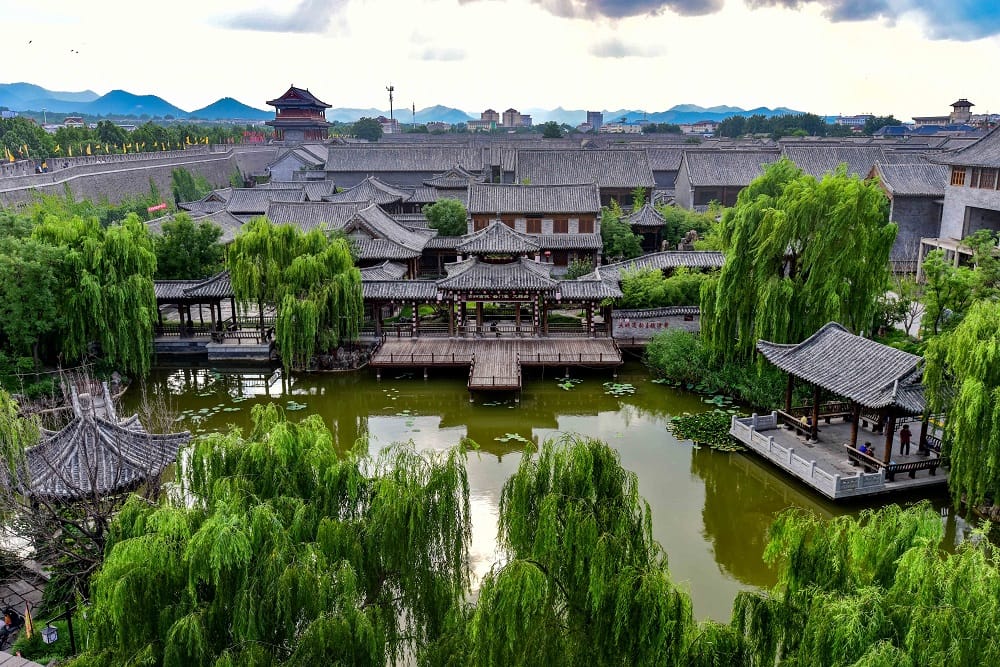
Linzi Ancient City Of Qi.
Main Highlights: What You Absolutely Can’t Miss
Discover the Treasures of Linzi Ancient City of Qi
If you’re venturing into the heart of Shandong Province, the ancient city of Linzi offers a captivating glimpse into China’s rich historical tapestry. Once the capital of the Qi State during the Warring States period, Linzi is not just a site of ancient ruins but a vibrant area where history and culture intertwine seamlessly. Here are the key highlights you absolutely can’t miss during your visit.
1. Qi Dynasty Memorial Museum
Located just a short distance from the heart of the ancient city, this museum serves as a gateway to the history of the Qi State. The exhibits showcase artifacts ranging from pottery to ancient weapons, providing insight into daily life and the cultural practices of the Qi people. Don’t miss the interactive displays that allow you to engage with history in a meaningful way.
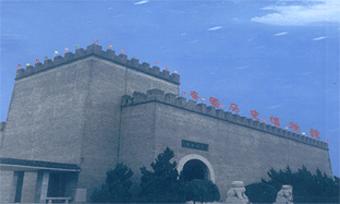
Linzi Ancient City Of Qi.
2. Mausoleum of Qi Dynasty
A short trek from the museum, this ancient burial site reflects the grandeur of the Qi rulers. The tombs, surrounded by lush greenery, are a serene place for reflection. As you explore, you’ll discover intricate stone carvings and historical relics that tell the story of the region’s past.
3. Zibo Qi Old City
Stroll through the narrow streets of Zibo Qi Old City, where traditional architecture meets modern life. Here, you can shop for unique handicrafts, including paintings and ceramics, while savoring local delicacies like the famous sesame seed bread. The area is also dotted with ancient Buddhist temples, adding a spiritual dimension to your exploration.
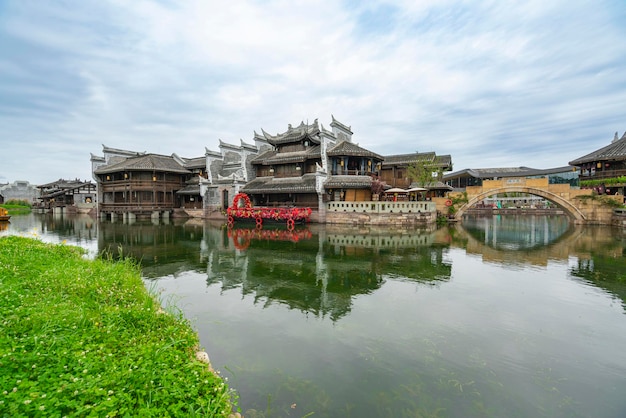
Linzi Ancient City Of Qi.
4. Wenshao Confucius Monument
This impressive monument is dedicated to Confucius, emphasizing the profound influence of Confucian thought in Chinese culture. The monument is not only a popular spot for photos but also a reminder of the philosophical heritage that has shaped Chinese society for centuries.
5. Ancient Ruins of Linzi
The remnants of ancient walls and structures are scattered throughout the Linzi district. Take a moment to walk along the remains of the city walls, which once encircled the capital of the Qi State. These ruins are a testament to the city’s historical significance and provide a picturesque backdrop for photography enthusiasts.
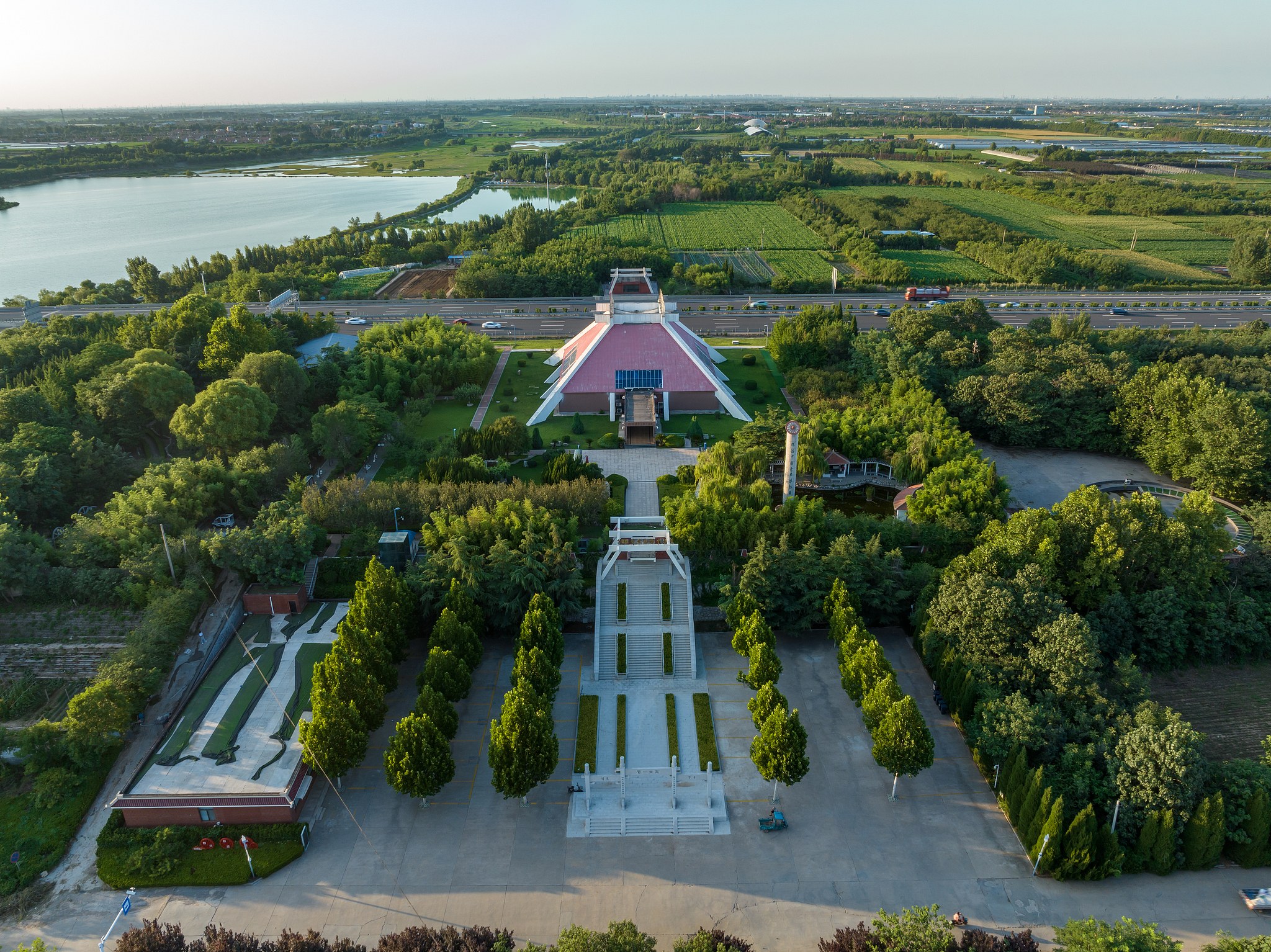
Linzi Ancient City Of Qi.
6. Taigong Lake National Park
For those seeking a tranquil escape from the historical sites, Taigong Lake National Park offers a serene environment to relax and unwind. Enjoy scenic walking paths, lush landscapes, and the opportunity to spot local wildlife. The park is an excellent place for a picnic or simply to soak in the beauty of nature.
7. Local Cuisine
No visit to Linzi would be complete without indulging in regional delicacies. Be sure to try the local specialties, such as the rich and flavorful dishes that highlight Shandong’s culinary heritage. From hearty noodle soups to aromatic dumplings, the food here is an essential part of the cultural experience.
8. Seasonal Festivals and Events
If your visit coincides with local festivals, you’ll have the chance to immerse yourself in traditional celebrations that reflect the vibrant culture of Linzi. Events often feature performances, parades, and culinary delights, providing a lively atmosphere that showcases the community’s pride in its heritage.
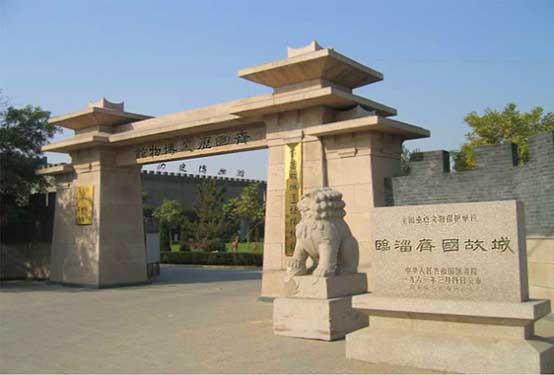
Linzi Ancient City Of Qi.
Final Thoughts
Linzi Ancient City of Qi is a treasure trove of history and culture waiting to be explored. Whether you’re wandering through ancient ruins, savoring local cuisine, or engaging with the narratives of the past at the museum, each experience contributes to a deeper understanding of this remarkable region. Embrace the journey through time and immerse yourself in the stories that have shaped China’s history.
Planning Your Visit: A Practical Guide
Essential Guide for Visiting Linzi Ancient City of Qi
Nestled in Shandong Province, the Linzi Ancient City of Qi (临淄齐国故城) is a treasure trove of Chinese history and culture, serving as the capital of the ancient Qi State. This guide aims to equip you with everything you need to make the most of your visit, from travel logistics to local attractions and culinary delights.
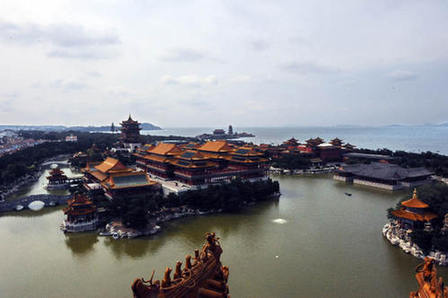
Linzi Ancient City Of Qi.
Getting There
By Air:
The nearest major airport is Jinan Yaoqiang International Airport (TNA), approximately 70 kilometers away. From the airport, you can hire a taxi or take a shuttle bus to Linzi.
By Train:
Linzi Railway Station connects to major cities in China, including Beijing and Shanghai. High-speed trains make this a convenient option for travelers.

Linzi Ancient City Of Qi.
By Bus:
Local buses frequently run from Zibo to Linzi, making it accessible for those traveling from nearby cities.
Best Time to Visit
The ideal time to explore Linzi is during the spring (April to June) and autumn (September to November) when the weather is mild and suitable for outdoor activities. Summer can be hot, while winter may bring colder temperatures, so plan accordingly.
Attractions Not to Miss
-
Linzi Ancient City Walls:
Walk along the impressive remnants of city walls that date back over 2,000 years, providing a glimpse into the military architecture of the ancient Qi State. -
Mausoleum of Qi Dynasty:
A short distance from the city center, this site is the burial location of Qi kings and is rich with artifacts from the era. -
Qi Dynasty Memorial Museum:
This museum showcases the history and culture of the Qi State, featuring historical relics, artifacts, and informative exhibits. -
Wenshao Confucius Temple:
A tranquil spot dedicated to Confucius, it offers insight into the philosophical traditions that shaped Chinese culture. -
Ancient Ruins of the Qi State:
Explore the archaeological sites that reveal the urban planning and lifestyle of the Qi State’s inhabitants.
Accommodation Options
Linzi offers various accommodations ranging from budget hotels to comfortable mid-range options. Some recommended places to stay include:
- Zibo Zhonghua Hotel: A well-rated hotel with modern amenities and easy access to local attractions.
- Linzi Xincheng Hotel: A popular choice among travelers for its affordability and convenient location.
- Local Guesthouses: For a more authentic experience, consider staying at one of the guesthouses where you can engage with local culture.
Culinary Delights
No visit to Linzi is complete without sampling the local cuisine. Here are some must-try dishes:
- Zibo Grilled Lamb Skewers: Tender and flavorful, these skewers are a staple in the region.
- Steamed Buns (包子): Enjoy freshly made buns filled with meat or vegetables, a perfect snack while exploring the city.
- Sesame Seed Roasted Flatbread: A delightful treat to accompany your meal or as a snack on the go.
Transport Within Linzi
Once in Linzi, getting around is straightforward:
- Public Buses: An economical way to navigate the city, with routes connecting major attractions.
- Taxis and Ride-hailing Apps: Convenient and relatively inexpensive for door-to-door service.
- Bicycle Rentals: Explore the city at your own pace by renting a bike, available from various local shops.
Tips for Travelers
- Language: While Mandarin is the primary language, learning a few basic phrases can enhance your experience.
- Cash: Although credit cards are accepted in some places, carrying some cash is advisable for small purchases and street food.
- Cultural Etiquette: Respect local customs, especially when visiting temples and historical sites. Dress modestly and maintain a respectful demeanor.
Conclusion
Linzi Ancient City of Qi is not just a destination; it’s a journey through time, offering rich history, culture, and culinary experiences. Equip yourself with this practical guide, and you are set for an enriching visit to one of China’s historical gems. Enjoy your adventure!
Tickets: Prices, Booking, and Tips
Exploring Linzi Ancient City: Ticket Information, Booking, and Travel Tips
Visiting the Linzi Ancient City of Qi offers a unique glimpse into China’s rich historical tapestry. To make the most of your experience, it’s essential to know the ticket prices, booking options, and a few handy tips.
Ticket Prices
- General Admission: The entrance fee to Linzi Ancient City is approximately CNY 30 (about $4.50 USD). This ticket grants you access to the main historical sites and exhibits within the city.
- Discounted Tickets: Students, seniors, and children under a certain age can often enjoy a 50% discount on admission fees. Be sure to bring valid identification.
Booking Options
- On-Site Purchase: Tickets can be purchased at the entrance. However, during peak tourist seasons, it’s advisable to arrive early to avoid long queues.
- Online Booking: Various travel platforms, such as Trip.com and Viator, offer the option to book tickets in advance. This can save you time and sometimes provide exclusive discounts.
Tips for Your Visit
- Timing Your Visit: Linzi Ancient City is open daily from 7:55 AM to 6:00 PM. To fully enjoy the site with fewer crowds, consider visiting on weekdays or early in the morning.
- Guided Tours: For a more in-depth understanding of the city’s history and significance, consider joining a guided tour. Many local guides are knowledgeable about the ancient Qi state and can enhance your experience with stories and insights.
- Explore Nearby Attractions: Don’t miss the nearby Qi Dynasty Memorial Museum and the Mausoleum of the Qi Dynasty, both of which are within a short distance and provide additional context to the city’s historical significance.
- What to Bring: Wear comfortable shoes, as you’ll be walking on cobblestone streets. Also, bring water and snacks to keep your energy up while exploring.
Getting There
Linzi is well-connected by public transportation, and taxis are readily available. If you’re coming from Zibo city center, consider taking a local bus or arranging for a ride-sharing service.
With its blend of history, culture, and stunning architecture, Linzi Ancient City of Qi is a must-visit for anyone delving into the depths of China’s past. Plan your trip wisely, and prepare to be captivated by the echoes of a civilization that shaped much of what we know today.
How to Get There: A Complete Transportation Guide
Reaching Linzi Ancient City of Qi
Nestled in the heart of Shandong Province, Linzi Ancient City of Qi is a treasure trove of history and culture. As the former capital of the Qi state during the Warring States period, this city offers a unique glimpse into ancient Chinese civilization. Here’s how to navigate your way to this fascinating destination.
Getting to Linzi
By Air
The nearest major airport to Linzi is Jinan Yaoqiang International Airport (TNA), located approximately 70 kilometers away. This airport connects to major cities across China and offers international flights as well. From the airport, you have a couple of options:
- Taxi: A direct taxi ride will take about an hour and cost around ¥200-¥300.
- Airport Shuttle: Look for shuttles heading to Zibo City, which is about 20 kilometers from Linzi. From Zibo, you can take a taxi or local bus to Linzi.
By Train
Linzi is well-served by train, making it easily accessible from several key cities:
- High-Speed Train: The Zibo Railway Station is the closest high-speed train station to Linzi, with frequent trains from major destinations such as Beijing, Shanghai, and Jinan. The journey from Jinan takes about 30 minutes.
- Local Train Services: Once at Zibo Railway Station, you can take a local train or taxi to Linzi, which is approximately 15 kilometers away.
By Bus
If you prefer to travel by bus, there are several options:
- Long-Distance Buses: Long-distance buses to Linzi depart from various cities in Shandong Province. The Zibo Bus Station has regular services to Linzi, with a travel time of around 30-40 minutes.
- Local Buses: Within Zibo, buses frequently run to Linzi District. This is an economical option; just be sure to check the schedule for the latest departures.
Getting Around Linzi
Once you arrive in Linzi, several transportation options are available to explore the ancient city and its surroundings:
- Walking: Linzi Ancient City is compact and best explored on foot. Stroll through the streets to fully immerse yourself in its rich history and culture.
- Bicycles: Renting a bicycle is a popular and eco-friendly way to explore. Many local shops offer rental services at affordable prices.
- Taxis and Ride-Hailing Services: Taxis are readily available, and ride-hailing apps like Didi are also operational in the area for convenience.
Local Tips
- Language: While some locals may speak basic English, it’s helpful to download a translation app or learn a few key phrases in Mandarin.
- Currency: The local currency is the Chinese Yuan (CNY). Make sure to have some cash on hand, as not all places accept credit cards.
- Weather Considerations: Check the weather before your visit. The best times to explore are spring (April to June) and autumn (September to November) when the temperatures are mild.
With this guide, you are well-equipped to embark on your journey to Linzi Ancient City of Qi. Immerse yourself in the historical ambiance and let the stories of the past enrich your travel experience!
Local Cuisine and Accommodation Nearby
Discovering Linzi: A Taste of Tradition and Comfort
As you explore the rich historical tapestry of Linzi, the ancient capital of the Qi State, don’t miss the opportunity to indulge in its local cuisine and find comfortable accommodations nearby. This vibrant district offers a delightful blend of culinary treats and restful places to stay, making your visit both enriching and enjoyable.
Culinary Delights
Linzi District is known for its unique flavors and local specialties. Here are some must-try dishes that will tantalize your taste buds:
-
Qi-style Roast Duck: Renowned for its crispy skin and succulent meat, this dish is a local favorite. Served with a sweet sauce, it’s a true representation of the region’s culinary artistry.
-
Sesame Seed Cake (Shaobing): A popular street food, this thin, circular bread is filled with sesame seeds and often served warm. It’s perfect for a quick snack as you wander through the ancient streets.
-
Braised Pork Belly (Hong Shao Rou): This savory dish features tender pork belly cooked in a rich soy sauce, sugar, and spices, creating a melt-in-your-mouth experience.
-
Traditional Noodles: Linzi boasts various noodle dishes, often served with fresh vegetables and a choice of meat or tofu, drenched in a flavorful broth.
For a taste of local dining, consider visiting these popular eateries:
-
Zibo Qi Old City Restaurant: Located near the ancient city, this restaurant offers a selection of local dishes in a charming atmosphere.
-
Linzi Food Street: A bustling hub where you can sample a variety of street foods, from skewers to dumplings. It’s a great place to mingle with locals and soak up the lively ambiance.
Accommodation Options
After a day of exploration and culinary indulgence, you’ll want a comfortable place to rest. Linzi offers a range of accommodations to suit different preferences and budgets:
-
Jinjiang Inn: A reliable choice for travelers, this hotel combines comfort with modern amenities. Located conveniently near the historical sites, it provides easy access to local attractions.
-
Zibo Shangri-La Hotel: For those seeking a touch of luxury, this hotel offers exquisite rooms, exceptional service, and on-site dining options, making it a perfect retreat after a long day of sightseeing.
-
Home Inn: A budget-friendly option that doesn’t compromise on comfort. This chain hotel offers cozy rooms and is located within walking distance of many of Linzi’s key attractions.
-
Local Guesthouses: For a more intimate experience, consider staying at one of the family-run guesthouses. These offer not only comfortable accommodations but also a chance to connect with local culture and hospitality.
Conclusion
In Linzi, the fusion of rich history and vibrant local culture is mirrored in its cuisine and accommodations. Whether you’re savoring traditional dishes or resting in welcoming lodgings, your experience in this ancient city will be unforgettable. So pack your bags, bring your appetite, and get ready to explore the wonders of Linzi!
Frequently Asked Questions
Frequently Asked Questions about Linzi Ancient City of Qi
1. What is the historical significance of Linzi Ancient City?
Linzi, the ancient capital of the Qi State, played a pivotal role during the Spring and Autumn period of Chinese history (770-476 BCE). It was a center of political, military, and cultural development, making it an essential site for understanding early Chinese civilization. The ruins and artifacts found here provide insight into the life and governance of the Qi dynasty.
2. How can I get to Linzi Ancient City?
Linzi is located in Zibo, Shandong Province. The easiest way to reach it is by taking a train to Zibo Railway Station, followed by a short taxi ride to the ancient city. Alternatively, you can fly into Jinan International Airport and take a bus or taxi to Zibo, which is about an hour away.
3. What are the opening hours for Linzi Ancient City?
The ancient city is generally open to visitors from 7:55 AM to 6:00 PM daily. It’s advisable to check for any special events or holidays that might affect these hours.
4. Are there guided tours available?
Yes, several local tour operators offer guided tours of Linzi Ancient City. These tours often include visits to key historical sites, such as the Mausoleum of the Qi Dynasty and the Qi Dynasty Memorial Museum, providing in-depth information about the history and significance of the area.
5. What should I wear when visiting?
Comfortable walking shoes are highly recommended, as you will likely do a fair amount of walking on uneven surfaces. Dress in layers, as the weather can vary throughout the day, especially in spring and fall. Don’t forget sun protection, as some parts of the city are exposed.
6. Are there dining options available in Linzi?
Yes, there are several restaurants and food stalls near Linzi Ancient City where you can try local Shandong cuisine. Be sure to sample local specialties, such as the famous “yangrou chuan” (lamb skewers) and various dumplings.
7. Is Linzi Ancient City family-friendly?
Absolutely! The site offers a range of activities suitable for families. Children can enjoy exploring the ruins and learning about ancient Chinese culture through interactive exhibits. Additionally, the surrounding parks provide spaces for kids to play.
8. What nearby attractions should I consider visiting?
In addition to Linzi Ancient City, consider visiting the Qi Dynasty Memorial Museum, the ancient ruins of the Mausoleum of Qi Dynasty, and the China Ancient Chariots Museum. Each site adds a unique dimension to your understanding of the region’s rich history and culture.
Final Thoughts on Your Trip
As your journey through the ancient corridors of Linzi comes to a close, you’ll find yourself enriched by the tapestry of history, culture, and timeless traditions that this remarkable city offers. Once the heart of the Qi State, Linzi is not just a destination; it is a portal to the past, where every stone whispers tales of emperors, philosophers, and warriors who shaped the course of Chinese civilization.
Reflections to Carry Home
-
Historical Significance: Your exploration of Linzi’s ancient ruins and museums has provided a glimpse into the sophisticated society that thrived here over two millennia ago. The Qi Dynasty Memorial Museum and the Mausoleum of the Qi Dynasty serve as poignant reminders of the city’s glorious heritage.
-
Cultural Immersion: From wandering the bustling streets lined with traditional shops to savoring local delicacies, you’ve immersed yourself in the living culture of Linzi. The unique crafts and culinary delights—such as the roasted sesame seed bread—are treasures to remember.
-
Spiritual Connections: The serene ambiance of ancient Buddhist temples, nestled within the city, invites reflection and peace. These sacred spaces connect you to the spiritual heart of China, offering a moment of tranquility amidst your adventures.
The Journey Continues
As you prepare to leave, take with you not just memories, but also a deeper understanding of China’s rich historical narrative. Linzi is a testament to the resilience and ingenuity of its people, and it stands as a vivid reminder of the past that continues to influence the present.
Final Thoughts
Whether you are a history buff, a culture enthusiast, or an adventurous spirit, Linzi has something to inspire you. Allow the echoes of ancient wisdom and the warmth of local hospitality to resonate within you. As you venture onward, let the stories of Linzi guide your travels and enrich your experiences in the world beyond. Safe travels!